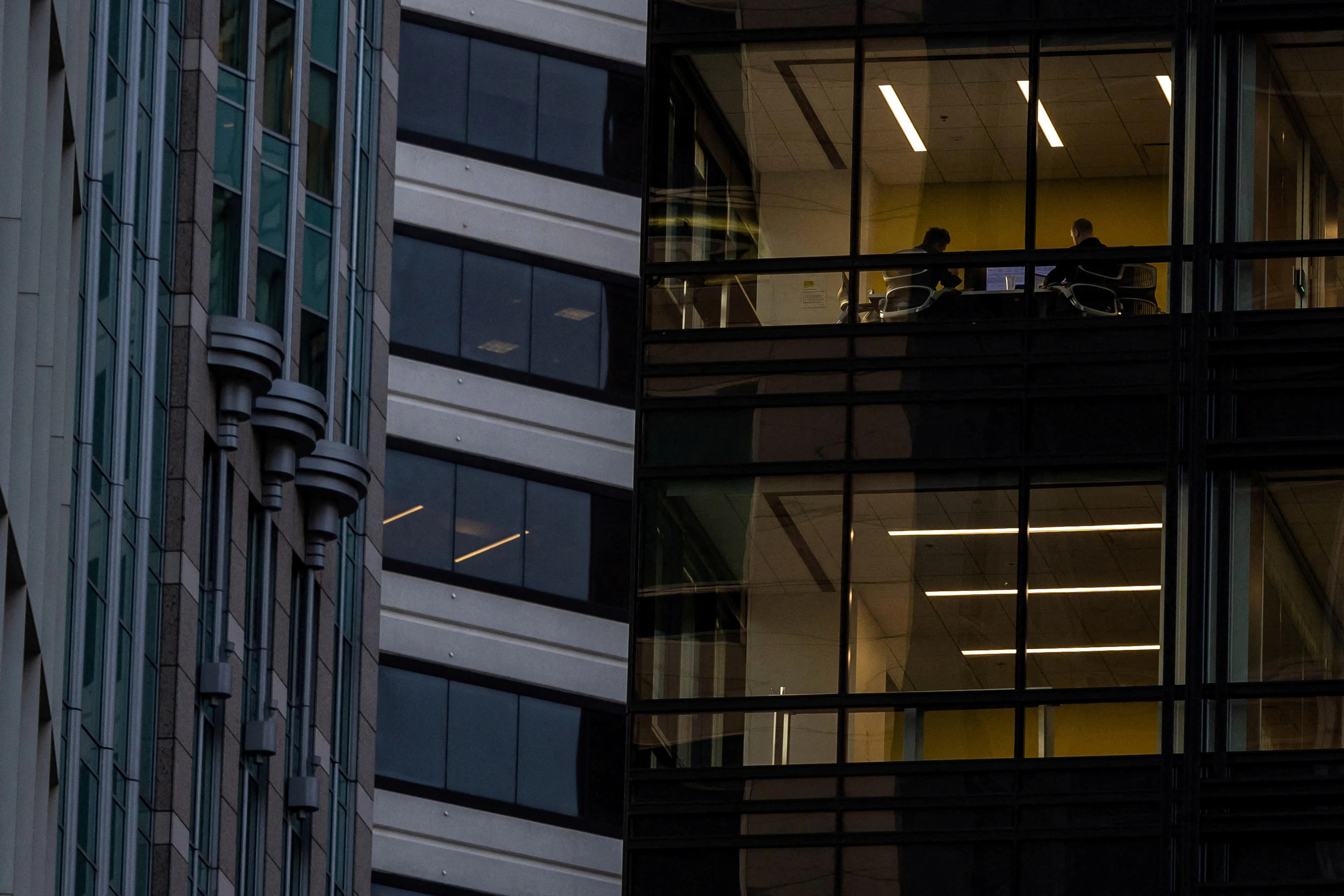Large US banks may be more exposed to commercial property than regulators appreciate because of credit lines and term loans they provide to real estate investment trusts, according to a new study.
Big banks’ exposure to commercial real estate (CRE) lending grows by about 40 per cent when that indirect lending to Reits is added, wrote researchers including Viral Acharya, a professor of economics at New York University. That’s largely been missed in the debate about the risks the troubled industry poses to lenders, they argue.
“Everyone is focusing on on-balance sheet loans by banks,” Acharya, a former deputy governor at the Reserve Bank of India, said in an interview. “We should not get caught in a blind spot that large banks have relatively less exposure than smaller banks.”
Reits have faced challenges since the start of the pandemic as working from home threatens the long-term value of offices, while high borrowing costs have hurt many multifamily investments. Some investors responded by pulling money from trusts over the past two years, including those managed by Starwood Capital Group and Blackstone, which limited redemptions to preserve liquidity.
Reits are companies that own, operate or lend to income-producing real estate. They are obliged to make large dividend payouts each year, meaning they’re comparatively cash poor. As a result, they tend to draw down credit from banks when they’re worried about redemptions and there’s high stress in the wider economy, making it a concern for the researchers.
That can create “sudden encumbrance of capital and/or liquidity,” the report says. Regulators should better incorporate a lender’s exposure to property investment trusts when conducting stress tests on bank capital, it added.
A NEWSLETTER FOR YOU
Property Insights
Get an exclusive analysis of real estate and property news in Singapore and beyond.
The risk from draw-downs can’t be easily managed by banks because borrowers decide when they make them, which “can exaggerate banks’ cyclical risks”, according to the report. In some cases, the money seems to be used to buy additional properties, the researchers found.
“Collateral damage to the largest banks from intensive credit line draw-downs means that systemic risk from total CRE exposure is probably much greater than if you only look at direct exposure,” said Manasa Gopal, an assistant professor of finance at Georgia Tech, who’s one of the report’s authors.
Of the largest five US banks by market capitalisation, Morgan Stanley has the highest percentage of its own credit lines committed to Reits, according to fellow co-author Max Jager, assistant professor at the Frankfurt School of Finance & Management. Still, on an absolute basis, Morgan Stanley’s exposure is smaller than its peers’. A company spokesperson declined to comment.
The Federal Reserve has been examining banks’ exposure to Reits and shadow lenders and has been tracking the debt links between them. In its financial stability report in April, it said that bank credit commitments to Reits had fallen year over year.
Still, credit lines to Reits have grown at a much faster rate than to other borrowers in recent years, the researchers said, adding lenders should charge higher fees for the products to compensate for the risk they’re assuming.
Months before Blackstone Reit halted redemptions toward the end of 2022, the firm secured an increase in its credit line at a little changed or unchanged spread “despite the obviously increased credit and draw down risks,” according to the report.
“Breit has a proactive and disciplined approach to managing liquidity,” a representative for Blackstone said in a statement. “It has maintained ample levels of liquidity through the cycle to run its business effectively and has a strong balance sheet.”
Large US banks had US$345 billion of indirect exposure to commercial real estate in the fourth quarter of 2022, the analysis found. That’s up from US$109 billion in the same period of 2013.
Despite that, leverage ratios for Reits remain low. Their debt to market assets ratio stood at 33.8 per cent at the end of the first quarter, according to research by representative body National Association of Real Estate Investment Trusts (Nareit), meaning they “are facing less stress” than counterparts with higher debt loads.
In the wake of the pandemic, much of the risk to banks from lending to stressed Reits was mitigated by the Fed’s backstop measures that ensured banks had sufficient liquidity to meet demands, Acharya said. That might not always be the case.
“The credit line has an episodic aspect to it, you don’t know exactly when that event is going to happen,” he said. “The risk is that we don’t know exactly how the episodes play out.” BLOOMBERG



